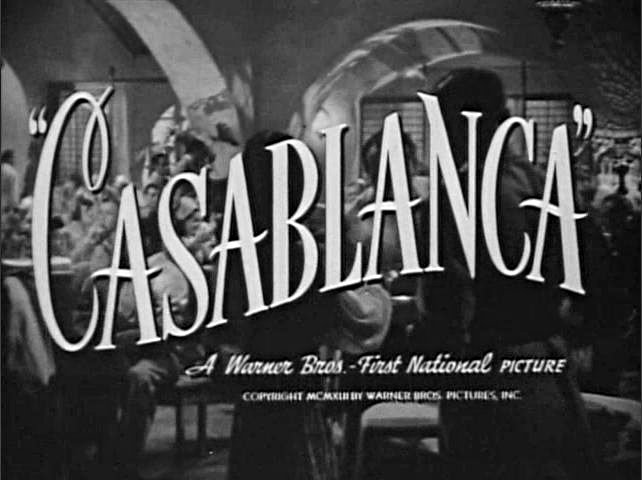
If you’ve been paying attention to the financial news these days, it’s been hard to avoid dire headlines from abroad. Argentina is sliding toward a currency collapse. Turkey is in political turmoil. Venezuela is slipping fast.
As a retirement investor, such news might give you pause. After all, it’s likely that you own at least some emerging-market stocks. After breaking even in the third week of January, the emerging markets fell fast, down by 7% just two weeks later.
That might not be so hard to accept, but the S&P 500 also fell in lockstep, losing about 5.5%. It was bad news made worse for everyone exposed to stocks, regardless of national provenance.
Both indices have recovered, but one should never let facts get in the way of a good story. The reaction from the investment community has been equal parts panic-mongering and that strange kind of fake shock you would expect from police Captain Louis Renault in the movie Casablanca.
You remember the scene:
Rick: How can you close me up? On what grounds?
Captain Renault: I’m shocked, shocked to find that gambling is going on in here!
[a croupier hands Renault a pile of money]
Croupier: Your winnings, sir.
Captain Renault: [sotto voce] Oh, thank you very much.
[aloud]
Captain Renault: Everybody out at once!
I say fake because the emerging market managers now shouting “everyone out” were only too happy to tout BRIC economies when they were hot. Then it was all about frontier markets. Then some pushed a “flight to quality,” which amounted to suddenly buying global blue-chips.
The underlying motive is easy to comprehend: Whatever the outcome, a lot of expensive trading is going on, plus return chasing, plenty of risk and, frankly, not much long-term reward. As long as managers rotate in and out of markets, it looks like they’re “doing something,” even if that something is losing money.
The Captain Renaults of the investment world offer a few arguments as to why you should panic and take action on your emerging markets positions. The arguments seem watertight at first. Yet they fail the test of common sense.
Here’s their case, plucked from the financial media, and why you should ignore them:
“Emerging markets are high risk now”
File this one under “headlines that are not news.” A cursory review of economic history demonstrates the clockwork quality of crises in some developing countries. You could just about set your watch by it.
In fact, you need only look at sovereign bond yields. One of the reasons certain countries pay a premium to borrow is the predictable risk that someday — in one year or five or 10 — the economy will falter, leaving equities and bond holders out in the cold.
What this argument fails to communicate is that while some countries are on the downside of this all-too-predictable cycle, others are on the upside. The recent declines are real but not the same as the overall risk of a diversified emerging markets holding.
Rather, the index’s decline (and subsequent recovery) is a much better indicator of investor herd mentality. It’s the simple fear of being caught out short-term after a long, pleasant ride upward.
“Stock picking will protect you”
The answer, some managers will tell you, is never to go passive on emerging markets. You need a pro, they say, a stock picker who can put you in exactly the right companies and in exactly the right countries and then get you back out in time to avoid the inevitable crash.
Yet money managers aren’t clairvoyant simply because they speak with a foreign accent or spent five years after college living in Mexico City. They are subject to the same market volatility we all face. They buy and sell equities and bonds in the same vast markets as their peers in Manhattan, London and Indianapolis.
Kiplinger recently ran a list of the best-performing emerging market funds. The top funds over three-, five-, 10- and 20- years change places, naturally. Some do well short-term but have no long-term record. Others have staying power over decades but awful one-year numbers. All charge stiff fees, some above 2.2%.
Look up that list a year from now. The top three are very likely to have changed, and again the next year, and again, and so on. Some funds will fail and close. New ones will begin. The managers will set up the chairs and start the music once again.
The only mistake you can make here is to play the game of chasing returns by chasing “hot,” expensive managers. Inexpensive, passive portfolio investing really is the answer in volatile markets.
“Get out while you can”
A sharp decline in any investment can set you on edge. A kind of survival-mode adrenaline begins to pump. Selling feels smart, and anyone telling you to do so seems smart by extension.
We seek confirmation of our fears and, all too often, we find it on the web or by clicking the TV remote. Behavioral finance experts call it “confirmation bias.” News producers call it ratings.
Which reminds me of an old story from Warren Buffett, the one about hamburgers. Here’s Buffett talking in December 2001, to Fortune magazine:
“I’m going to buy hamburgers the rest of my life. When hamburgers go down in price, we sing the ‘Hallelujah Chorus’ in the Buffett household. When hamburgers go up in price, we weep. For most people, it’s the same with everything in life they will be buying — except stocks. When stocks go down and you can get more for your money, people don’t like them anymore.”
A serious, long-term retirement portfolio holds a mix of asset classes regardless of the headlines and, in fact, buys on declines precisely because prices are falling. To do otherwise is to put off buying your hamburger until prices are high again. Buffett would just laugh, and then buy.





